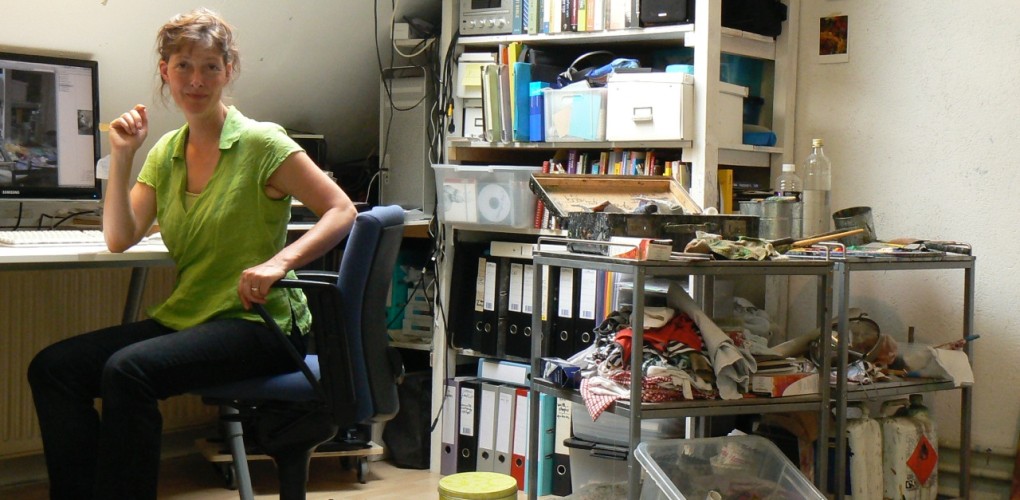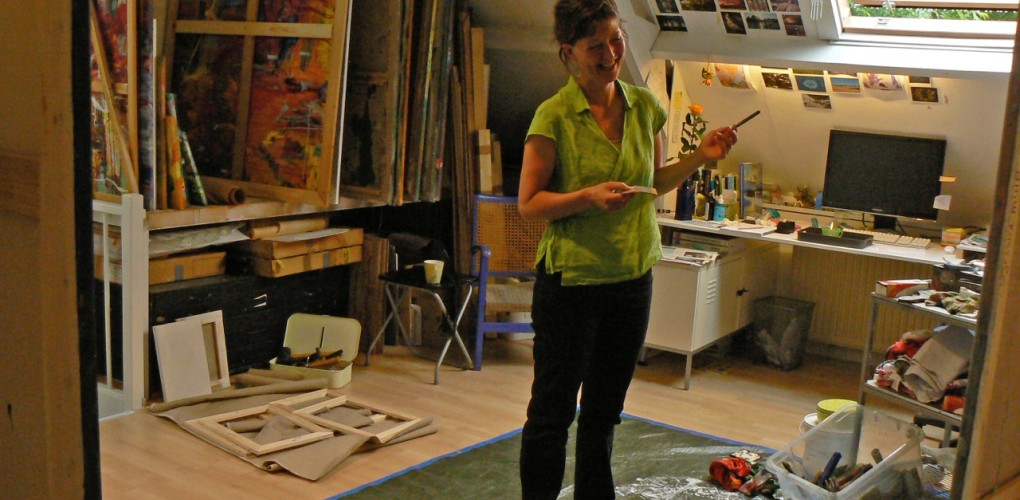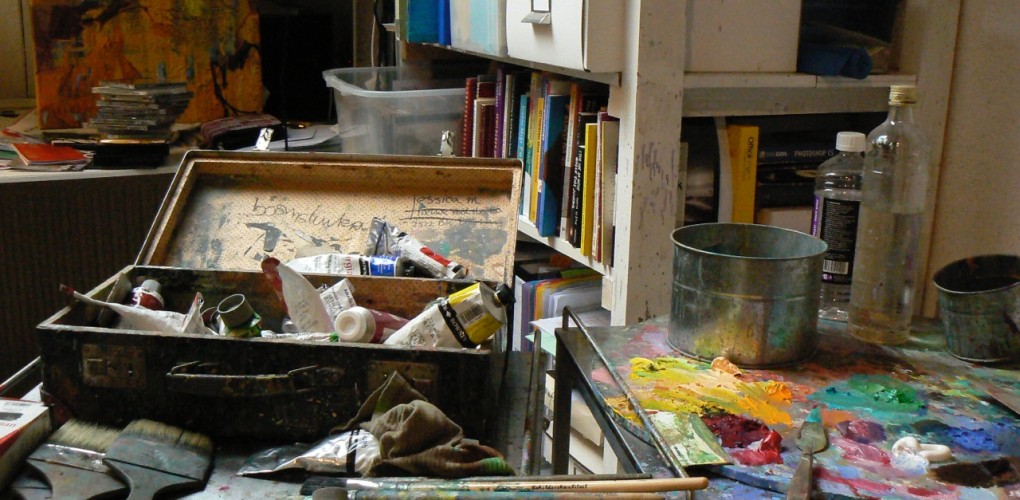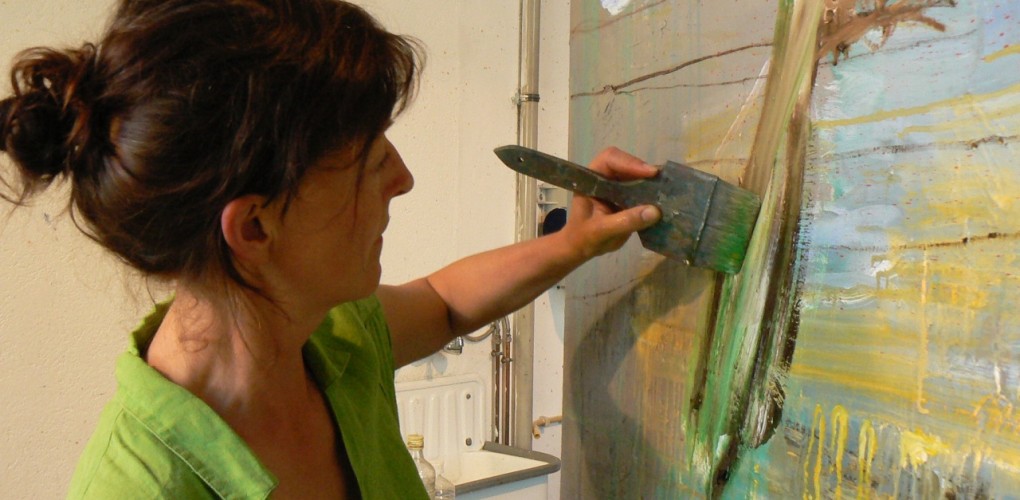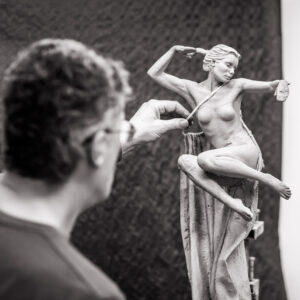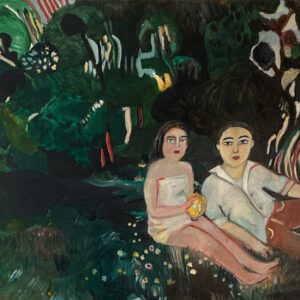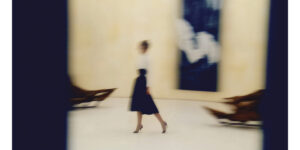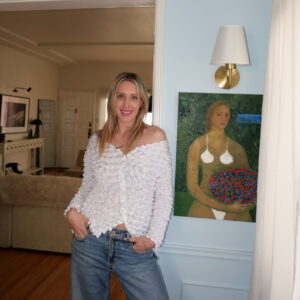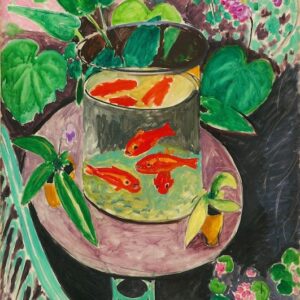Inside the Studio
 Jessica Muller
Jessica Muller
What are the major themes you pursue in your work?
The work starts from scratch, empty and meaningless. There is no such thing as a preconceived plan, nor a preconceived image to match. The entire existence is a timeless ‘being’, rising from from an accumulation of instantaneous snapshots which are timeless and boundless.
My paintings are abstract. The most dominant theme is to model the material upon an unknown space. Derrida’s philosophy of deconstructivism is a good comparison to what I mean. He talks about the meaning of texts which only can exist through all earlier texts. The real text is not a reflection of the reality (last text), but a construction of all the texts already stored in our minds. Without these texts you are even not able to understand this last text. Looking at a total page layout, all this knowledge exists between the lines and in the margin. That means that the white space contains an enormous amount of knowledge. This way of looking at a text is called deconstruction by Derrida. What Derrida does in words, I try to figure out through images. I work with abstraction, because I try to find new spaces, not seen around me, but constructed on the canvas.
What was the best advice given to you as an artist?
Believe and be strong in your own individual path.
Prefer to work with music or in silence?
Music brings me into another world. Sometimes I need this, especially when I am working on something in a painting that I don’t particularly like. But I also prefer music when I am thinking about something complex and difficult. And other times, silence can be beautiful, and I need it when I have to observe and construct the ongoing process in my paintings. I work on many paintings simultaneously, and they can speak in images more for themselves if there is silence.
If you could only have one piece of art in your life, what would it be?
I would love to stay a long time in Donald Judd’s “Halls of 100 Boxes” (Marfa, Texas, US). I have read a lot about his work and I admire Judd’s intentions to be pure in his materials. The space of the boxes and the optical illusion which takes place in front of me–that is what creates a sense of complete silence.
Who are your favorite writers?
My focus on certain writers changes with time. When I was eight years old, I loved to read biographies of Classical composers and travellers. Also, I was interested in the children’s Bible. In my twenties I became a fan of Milan Kundera, Clarissa Pinkola Estés, and Carl Jung. Then later I became interested in György Konrad, Chaim Potok, and other writers interested in European history. Then the Indian world got my attention with the Veda’s, Mahabharata, V.S.Naipaul, Salman Rushdi, Aronditha Roy, and Robert Pirsig. In the last few years I’m finally into our own philosophers, like Adorno, Hannah Arend, and writers who can teach me about philosophy and art–like Anton Breambussche, Maarten Doorman, and Arnold Hauser.
